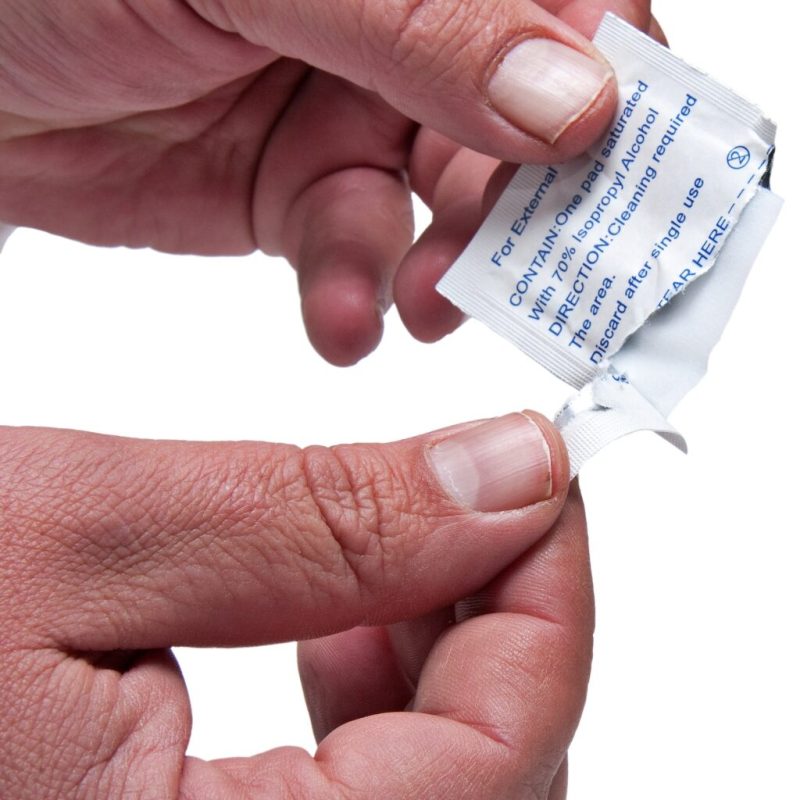For individuals living with diabetes, proper wound care and infection prevention are of paramount importance. Alcohol pads are invaluable tools for maintaining diabetic foot and skin health. In this guide, we’ll explore the various ways these pads can be used to support diabetic care and provide you with tips and tricks for their effective application.
- Sterilizing Before Blood Glucose Testing
Before you perform blood glucose testing, it’s crucial to ensure that the testing area is clean and free of contaminants. Use an alcohol pad to sterilize the fingertip or another testing site. This not only prevents infection but also ensures accurate readings.
- Wound Care and Infection Prevention
Diabetics are prone to foot ulcers and other skin issues due to reduced blood circulation and neuropathy. Regularly clean and disinfect any wounds or skin irritations with these pads to prevent infections, which can be especially dangerous for those with diabetes.
- Keeping Injection Sites Clean
For individuals with diabetes who require insulin injections, alcohol pads are essential for keeping injection sites clean. Wipe the area with an alcohol pad before and after each injection to reduce the risk of infection.
- Managing Hygiene While Traveling
When you’re on the go, these pads are convenient for maintaining hygiene. They can be used to clean hands before testing blood glucose, handling insulin supplies, or caring for minor injuries when you don’t have access to soap and water.
- Maintaining Foot Health
Diabetic foot care is a top priority. Use these pads to clean your feet daily, paying close attention to the spaces between your toes and the soles. Dry your feet thoroughly to prevent fungal infections.
- Preventing Skin Irritation from Adhesives
For those who use continuous glucose monitors (CGMs) or insulin pumps, skin irritation from adhesive materials can be a concern. Use an alcohol pad to gently clean and dry the skin before applying adhesive devices. This can help ensure a more secure attachment and reduce the risk of skin problems.
- Avoid Overusing Alcohol Pads
While these pads are valuable, excessive use can lead to skin dryness and irritation. Use them judiciously and consider using a moisturizer to keep your skin hydrated, especially if you have dry or sensitive skin.
- Always Carry Extras
Diabetics should always have these pads in their diabetes supply kit. Whether at home, work, or on the go, having a stash of these pads ensures you’re prepared for any situation that requires wound care, hygiene, or testing.
- Dispose of Used Pads Properly
After using an alcohol pad, dispose of it in a responsible manner. Place used pads in a designated container for medical waste to protect others and the environment.
Conclusion
Alcohol pads are versatile tools in diabetic care, helping to maintain proper hygiene, prevent infections, and ensure accurate blood glucose readings. By incorporating these tips and tricks into your diabetic care routine, you can enhance your overall well-being and take proactive steps to manage your health effectively. Always consult with your healthcare provider for specific guidance on using these pads as part of your diabetes care plan.



